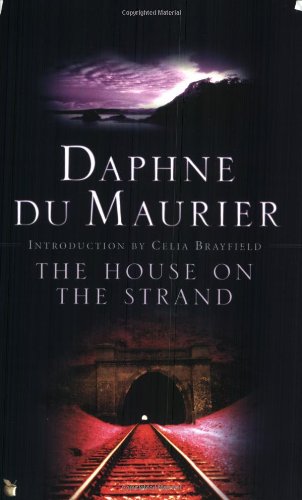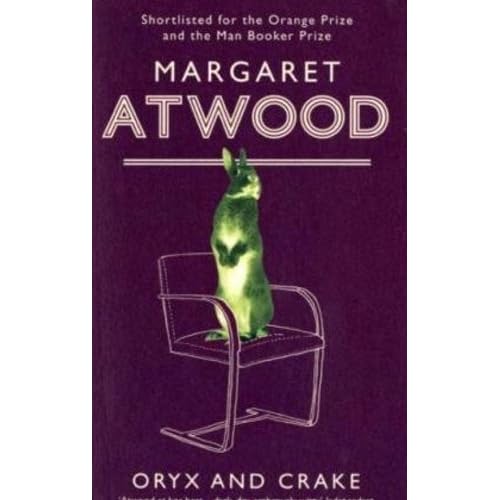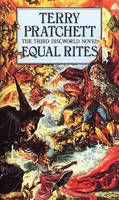Not many would be able to compete with Erin Morgenstern when it comes to building fantastical descriptive alternative worlds, which successfully transports the reader into a land of wonder and amazement and disbelief. But, with The Starless Sea, Morgenstern’s focus on creating the world of the starless sea is at the expense of the story. Narratives emerge only to taper off, storylines come up to never go anywhere, and while the reader’s lost in the mystical magical maze, there doesn’t seem to be a plan other than to just wander the maze, which would be great if this were a choose-your-own-adventure book.
The premise is intriguing. A grad student, Zachary Ezra Rawlins, picks up a book in the library that appears to have a story about him, from his childhood, when he stumbled upon a painted door that he didn’t open: the door to the Starless Sea. The Starless Sea is a magical underground place where stories in many shapes and forms live. Yes, this is a story about stories, with no central plot, but just meandering seemingly disconnected (but not) anecdotes that don’t complete the jigsaw puzzle.
Zachary embarks on a quest to figure out how his story ended up in a book, and ends up in the harbour at the shore at the Starless Sea, whose raison d'être seems to be a place for stories to live. There are motifs (a bee, a key, a sword) and more motifs (a feather, a heart, a crown), characters from different centuries, anthropomorphic representations of fate and time, and a “magical” kitchen that can serve up whatever one wants.
It’s a wild ride but with no destination.
While the central plot line is Zachary’s quest, interspersed between each chapter is an unrelated story. Some of them reference previous anecdotes or characters, some of them don’t. It’s up to the reader to figure it out. But, as soon as the reader—or, at least, I—got invested in one story, it resets. It’s not often you find a book with so much potential, with so much beauty, be so frustrating. It doesn’t help that Zachary’s an insipid character, with no great driving force.
Parts of it are imaginative and parts of it are not. When Morgenstern gets inspiration from other stories—say Alice in Wonderland—she doesn’t tiptoe around it. She just uses it as a simile, and moves on. Another main character is called Dorian, after, you guessed it: Oscar Wilde’s notorious protagonist. But, she relies on these winks to past literature to do the heavy lifting instead of moving the story forward herself. A metaphor could be a metaphor, or it could be literal. What seems to be literal could be a metaphor, or it could just be literal. At one point, a character says he’s not sure if he’s following the metaphors anymore. I’m not entirely sure anyone is.
I’m reading Philip Pullman’s book of essays at the moment (Daemon Voices). One of the essays, The Path Through The Wood: How Stories Work, sums up the problem with this book quite nicely, with a metaphor that doesn’t require heavy lifting.
So here we have two ideas: the wood and the path. The wood, or the forest if you like, is a wild space. It’s an unstructured space. It’s a space of possibilities. It’s a space where anything can happen (and it frequently does, in the words of the song from that great movie Hellzapoppin). There are monsters in the wood. There are life forms unlike any others. There are quarks and neutrinos and virtual particles; it’s full of charm and strangeness. It’s non-linear. It just grew.
The path, on the other hand, is a structure. And it has a function; it leads from here to there, or from A to B. It’s extremely linear; even when it doubles back and crosses itself it does so with an air of purpose. It says: ‘I know where I’m going, even if you don’t.’ It was made.
I expect you can see where this is going. Each novel or story is a path (because it’s linear, because it begins on page one and goes on steadily through all the pages in the usual order until it gets to the end) that goes through a wood. The wood is the world in which the characters live and have their being; it’s the realm of all the things that could possibly happen to them; it’s the notional space where their histories exist, and where their future lives are going to continue after the story reaches the last page.”
“That’s what I mean by the wood and the path, anyway. It’s the difference between the story-world and the story-line. And I want to stress again that the business of the storyteller is with the story-line, with the path. You can make your story-wood, your invented world, as rich and full as you like, but be very, very careful not to be tempted off the path…don’t leave the path.
The reason for this is simple: if you leave the path, the readers put down the book.”
That is basically what Morgenstern does. Leave the path to explore the woods.

 It was in
It was in  Sometimes I wish I was intelligent enough to get into Mensa. Well, maybe not quite Mensa, but I do wish things came more easily to me than they do - things that take some people around me a just couple of hours take me a couple of days, at least, and it frustrates the living daylights out of me.
And sometimes, you just need a book like Flowers of Algernon to put things in perspective. Charlie Gordon has an IQ of just 68, but he yearns to be "intelligent," so much so that he's taking classes to learn how to read and write. He lives alone, and supports himself by working in a bakery as a janitor, where he has lots of "friends."
Sometimes I wish I was intelligent enough to get into Mensa. Well, maybe not quite Mensa, but I do wish things came more easily to me than they do - things that take some people around me a just couple of hours take me a couple of days, at least, and it frustrates the living daylights out of me.
And sometimes, you just need a book like Flowers of Algernon to put things in perspective. Charlie Gordon has an IQ of just 68, but he yearns to be "intelligent," so much so that he's taking classes to learn how to read and write. He lives alone, and supports himself by working in a bakery as a janitor, where he has lots of "friends."
 Don't you love Terry Pratchett books? I do, despite never having read any in my teenage years, and Nation, a non-Discworld story, is no exception. Set in an alternate universe (or a parallel universe, if you like), this is the story of a young boy (Mau) whose homecoming has been ruined by a massive tidal wave, which has completely destroyed his village. There are no survivors, but him; and then he meets another survivor - from a shipwreck. Daphne, a posh British girl, with some royal blood, who doesn't speak the same language as Mau, nor is she accustomed to his kind of lifestyle.
As they try getting acquainted with one another, Pratchett exploits the humour surrounding language and cultural differences, keeping the reader thoroughly entertained; be it Daphne cooking for him, or him not realising what pointing a gun at him meant; be it the importance of trousers or the lack of clothes altogether.
Don't you love Terry Pratchett books? I do, despite never having read any in my teenage years, and Nation, a non-Discworld story, is no exception. Set in an alternate universe (or a parallel universe, if you like), this is the story of a young boy (Mau) whose homecoming has been ruined by a massive tidal wave, which has completely destroyed his village. There are no survivors, but him; and then he meets another survivor - from a shipwreck. Daphne, a posh British girl, with some royal blood, who doesn't speak the same language as Mau, nor is she accustomed to his kind of lifestyle.
As they try getting acquainted with one another, Pratchett exploits the humour surrounding language and cultural differences, keeping the reader thoroughly entertained; be it Daphne cooking for him, or him not realising what pointing a gun at him meant; be it the importance of trousers or the lack of clothes altogether. In January 2009, I was introduced to the wonderful world of David Mitchell by a friend, who lent me the surreal
In January 2009, I was introduced to the wonderful world of David Mitchell by a friend, who lent me the surreal  Harry Potter and the Order of the Phoenix is the fifth book in the popular Harry Potter series. I've read the book thrice: when it first came out, before the release of Harry Potter and the Half Blood Price, and of course, prior to the final book, Harry Potter and the Deathly Hallows, hitting the stores. One of my friends insisted I hadn't lived until I heard the Harry Potter audio books, and she proceeded to lend me six of the seven.
Harry Potter and the Order of the Phoenix is the fifth book in the popular Harry Potter series. I've read the book thrice: when it first came out, before the release of Harry Potter and the Half Blood Price, and of course, prior to the final book, Harry Potter and the Deathly Hallows, hitting the stores. One of my friends insisted I hadn't lived until I heard the Harry Potter audio books, and she proceeded to lend me six of the seven. Terry Pratchett's Equal Rites is the third book of the Discworld series, and, it's the first Discworld book that I have read.
Equal Rites explores the world where women cannot be wizards, and men cannot be witches. However, when a dying wizard visits a blacksmith, things in the wizarding world are about to change. The blacksmith is the eighth son, and his wife is about to give birth to their eighth son - perfect for the dying wizard to pass on his staff. Granny Weatherwax, a central character, who helps bring the baby into world, takes the baby to the smith, who makes it grab the staff. The old wizard dies, but, what the smith failed to realise is, the newborn baby blessed with magical wizard powers is a girl!
Terry Pratchett's Equal Rites is the third book of the Discworld series, and, it's the first Discworld book that I have read.
Equal Rites explores the world where women cannot be wizards, and men cannot be witches. However, when a dying wizard visits a blacksmith, things in the wizarding world are about to change. The blacksmith is the eighth son, and his wife is about to give birth to their eighth son - perfect for the dying wizard to pass on his staff. Granny Weatherwax, a central character, who helps bring the baby into world, takes the baby to the smith, who makes it grab the staff. The old wizard dies, but, what the smith failed to realise is, the newborn baby blessed with magical wizard powers is a girl! Background:
While this month, my blog entries seem to be focused a lot on the
Background:
While this month, my blog entries seem to be focused a lot on the  Coraline has just moved to a new house, and after acquainting herself with the neighbours, she sets about to 'explore' the place, for, you see, she is a self-acclaimed "explorer". She finds the well she's been warned to stay away from, just to know what to stay away from, and spends as much time outdoors as possible.
However, one rainy day, she stumbles upon a door in the living room, which opens only to greet her with a brick wall. And apparently, nothing on the other side - or so Coraline's mother tells her.
Coraline has just moved to a new house, and after acquainting herself with the neighbours, she sets about to 'explore' the place, for, you see, she is a self-acclaimed "explorer". She finds the well she's been warned to stay away from, just to know what to stay away from, and spends as much time outdoors as possible.
However, one rainy day, she stumbles upon a door in the living room, which opens only to greet her with a brick wall. And apparently, nothing on the other side - or so Coraline's mother tells her.